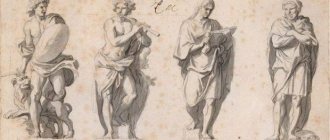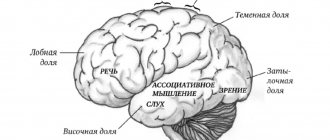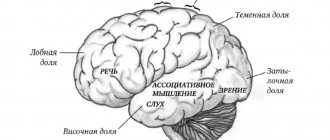Psychology studies not only the general laws and patterns of mental processes and states. We are all different, unique and inimitable individuals, therefore knowledge of the individual psychological characteristics of a person is no less important than the mechanisms and processes of the psyche that are characteristic of all people. This area is studied by a branch of psychology called differential psychology, or the psychology of individual differences.
Emotions
Emotions are a mental reaction to any events. An emotional reaction is always subjective and has nothing to do with objective facts. Emotions are associated with the individual needs of the individual, as well as beliefs and experiences.
By type, emotions can be positive or negative. The first includes joy, passion, enthusiasm, faith, optimism, hope, satisfaction. The second - boredom, irritation, disappointment, anxiety, despondency, fear, sadness, excitement.
Basic character traits
Personality orientation - what is it in psychology, its types
Character makes a person unique, helps to stand out from the crowd. Any individual is characterized by the desire to be accepted by society, to become part of a team, family or social group.
Additional Information. Nobody wants to be an outcast. Therefore, the need to be around other people is a natural human need.
To become a part of any society, an individual must not only perform useful functions, but also have a certain character. Knowing which hypothetical traits are welcomed in a group and which are rejected, it will be much easier to build communication with people.
Negative traits
Negative personality traits do not lead an individual to positive results. Negative manifestations of character are condemned in society. Among the main negative character traits, the following options can be distinguished:
Read also: How to change Prototype screen resolution?
- selfishness;
- greed;
- pettiness;
- envy;
- malice;
- deceit;
- self-criticism;
- cowardice;
- laziness;
- stubbornness.
Each of these properties can be diagnosed differently in people. In some people you can find the whole “set” of negative traits, in others you can find several of the most unpleasant “instances”.
How to overcome negative character traits
Important! Some negative qualities can be transformed into positive ones if a person works on himself.
Example: a greedy person can become thrifty, a stubborn person can become goal-oriented, a self-critical person can become creative, and a lazy student can become painstaking.
Positive features
Positive personality traits enable an individual to be useful, reliable, and valuable in society. Each era has its own list of socially significant character traits:
What kind of temperament is there?
Psychology of human personality
Temperament is an innate component of personality structure. It is customary to distinguish 4 types of temperament:
- Choleric is an impetuous, emotional person. His feelings flare up quickly, then fade away just as quickly. The impulsiveness of choleric individuals is manifested in speech, lively facial expressions, and sweeping gestures. Such people are often conflict-prone, do not know how to compromise and build constructive relationships with others.
- A melancholic person is an extremely sensitive person who is very easily upset. Such people have low resistance to stress and experience failures painfully and for a long time.
- A sanguine person is a cheerful, merry fellow who takes life’s troubles lightly and does not worry about trifles. It is extremely important for him to get different experiences, otherwise he will get bored. The feelings of such people are superficial, and their contacts are numerous.
- A phlegmatic person is a slow, thoughtful person. He has a balanced character and it is almost impossible to anger him. His facial expressions are scanty, and the emotions he experiences are not externally manifested.
Individuality
Temperament properties determine such personality traits and characteristics of a person as:
- Sensitivity (some people are resistant to pressure from others, while others are vulnerable);
- Susceptibility to criticism and destructive behavior of others;
- Cognitive activity, energy, efficiency (there are many obstacles on the way to achieving success, some people easily cope with difficulties, while others fall into despair and refuse to carry out their plans);
- Ability to concentrate in any conditions;
- Relative balance in the processes of the nervous system, which ensures successful interaction with people;
- Speed of mental processes (it is expressed in intelligence, speed of successful memorization of information, rate of speech, speed of writing, walking);
- Extroversion (for such people, communication and numerous contacts with different people are a necessary condition for good health);
- Introversion (a person’s focus on his own inner world provides him with a comfortable stay alone);
- The ability to quickly adapt to a new environment, changing conditions (this quality is professionally important for professions such as investigator, psychologist, doctor);
- Personal flexibility in communicating with people, the ability to find a common language with almost any person;
- Rigidity, conservatism, desire to follow stereotypes.
The type of temperament determines not only a unique set of personal qualities, but also a person’s character.
Additional Information. The names of temperament types invented by Hippocrates have survived to this day. However, this individual quality is now determined not by the proportional distribution of fluids in the body, but by neuropsychological characteristics.
Character traits and temperament properties
The first character traits based on temperament appear already in infancy, and by adolescence many of them become stable. At the same time, the relationship between character and temperament manifests itself in all aspects of a person’s life, forms the principles of his behavior, dictates interests, desires and actions.
Manifestations of character can be expressed in relation to oneself and the people around you. Tactfulness or rudeness, the desire to help loved ones or unwillingness to see other people’s difficulties, stable attachment or the ability to easily part with people determine the characteristics of a person’s communication.
Other character traits show his attitude:
- towards oneself - self-confidence or a tendency to self-flagellation;
- to the point - conscientiousness and responsibility or a tendency not to go into details and always rush;
- to things - neatness or negligence, respectful or not very respectful attitude towards other people's property and cultural values.
Character traits lay down behavior programs. And if the program is formed, this is exactly how a person will act in typical situations. Moreover, in childhood and adolescence, these “programs” are amenable to external adjustment - through the efforts of educators, teachers, parents, and psychologists. In adulthood, a person, as a rule, tends to follow accepted programs of action and change them only if he understands that they interfere with achieving his goals.
Motivation
In general, there are two sides to human behavior that complement each other: incentive and regulation. The incentive side ensures the activation of behavior and its direction, and the regulatory side is responsible for how behavior develops under specific conditions.
Motivation is closely related to such phenomena as motivations, intentions, motives, needs, etc. In the narrowest sense, motivation can be defined as a set of reasons that explain human behavior. This concept is based on the term “motive”.
A motive is any internal physiological or psychological urge responsible for the activity and purposefulness of behavior. Motives can be conscious and unconscious, imaginary and really active, meaning-forming and motivating.
The following phenomena influence human motivation:
Need is a state of a person’s need for anything necessary for normal existence, as well as mental and physical development.
A stimulus is any internal or external factor, coupled with a motive, that controls behavior and directs it to achieve a specific goal.
Intention is a thought-out and consciously made decision that is consistent with the desire to do something.
Motivation is a person’s not fully conscious and vague (possibly) desire for something.
It is motivation that is the “fuel” of a person. Just as a car needs gasoline so that it can go further, a person needs motivation in order to strive for something, develop, and reach new heights. For example, you wanted to learn more about human psychology and personality traits, and this was the motivation for turning to this lesson. But what is great motivation for one may be absolute zero for another.
Knowledge about motivation, first of all, can be successfully used for yourself: think about what you want to achieve in life, make a list of your life goals. Not just what you would like to have, but exactly what makes your heart beat faster and makes you emotional. Imagine what you want as if you already have it. If you feel that it turns you on, then this is your motivation to act. We all experience periods of ups and downs in activity. And it is precisely in moments of decline that you need to remember what you should move forward for. Set a global goal, divide its achievement into intermediate stages and start taking action. Only the person who knows where he is going and takes steps towards it will reach his goal.
Also, knowledge about motivation can be used in communicating with people.
An excellent example would be a situation where you ask a person to fulfill some request (for friendship, for work, etc.). Naturally, in exchange for a service, a person wants to receive something for himself (as sad as it may be, most people are characterized by selfish interest, even if it manifests itself in some to a greater extent and in others to a lesser extent). Determine what a person needs; this will be a kind of hook that can hook him, his motivation. Show the person the benefits. If he sees that by meeting you halfway, he will be able to satisfy some essential need for him, then this will be an almost 100% guarantee that your interaction will be successful and effective.
You can learn about the features of motivation, its types and other interesting things from the next lesson of our training.
In addition to the above material, it is worth mentioning the process of personality development. After all, everything that we considered before is closely interconnected with this process, depends on it and at the same time influences it. The topic of personality development is very unique and voluminous for describing it as a small part of one lesson, but it cannot be ignored. And therefore we will touch on it only in general terms.
General and individual in the human psyche
There is a saying: “Another person’s soul is darkness.” This is true only for those who do not know psychology at all. And this science is quite accurate, and it claims that there are unshakable general principles that govern the mental processes of any person. Not only the similarity of physiological structure, but also the commonality of the characteristics of the mental sphere allows us to classify all people as one species, Homo sapiens. We even go through similar stages of development and we all experience the same age-related crises and difficulties of growing up.
In psychology there is a concept of norm, although it is quite fragile. Too strong a deviation from the mental norm is considered a pathology, is recognized as a mental illness and requires the intervention of a psychotherapist or psychiatrist.
However, people are still different, and this is noticeable, one might say, with the naked eye, even to a person inexperienced in psychology. We behave differently in similar situations, we show emotions differently. There are differences in the course of cognitive processes, and in the level of intelligence, and in the volitional sphere, and in motor skills.
These features appear within the framework of general patterns, but they play an important role in creating a unique image of the individual. And at the same time, they help to understand her motives, desires, and predict behavior. That is, the individual manifests itself in general, and not only through the characteristics of behavior and external activity, but also at the internal level of consciousness.
Despite the diversity of manifestations of our psyche, when we talk about individual psychological characteristics, we primarily mean three areas: temperament, character and abilities. And if, for example, in cognitive processes the individual is only a superstructure, an addition to general patterns, then temperament, character and abilities can be considered as a manifestation of the unique uniqueness of each person.
Character as a psychological characteristic of personality
Character is a structure of persistent, relatively permanent mental properties that determine the characteristics of a person’s relationships and behavior.
Character demonstrates the characteristics of an individual’s behavior in society. It reflects an individual's attitude towards other people, as well as actions.
Character, unlike temperament, is not innate. But at the same time, its formation is influenced by the characteristics of the nervous system. Balance, strength, mobility - all these properties have a connection with a person’s reactions to certain stimuli. In addition to the nervous system, character is also influenced by other features of the body: endocrine, cardiovascular, and digestive systems. Disorders of these organs affect the character of the individual.
Character is a combination of stable and dynamic traits. The basis of character is formed gradually and strengthens throughout life, becoming typical for a particular individual. At the same time, some character traits may change depending on the situation and manifest themselves to a greater or lesser extent.
The following main groups of character traits :
- moral - attentiveness, sensitivity;
- strong-willed - firmness, determination;
- emotional - tenderness, temper.
There are also a number of properties in character:
- integrity;
- force;
- completeness;
- certainty;
- equilibrium.
All these manifestations are the result of life experience and upbringing. For example, if a teenager is exposed to violence at school, cruelty and embitterment appear in his character. Or the example of a loved one who demonstrates kindness to others helps to develop the same traits in a child.
Capabilities
Abilities are innate data. To be more precise, from birth we are given inclinations, and in the future it depends on the conditions of human development whether they develop abilities or not. Inclinations are anatomical and physiological features of the nervous system that serve as the basis for the formation of abilities. Abilities are personality traits that help one achieve greater success in performing any activity compared to other people.
Abilities can be biologically determined (given by nature) and socially acquired (specific abilities). In addition, in psychology it is customary to distinguish the following types of abilities:
- Are common. They help you achieve success in any type of activity. Examples of general abilities: good memory, high stability of attention and mental agility.
- Specialized. Increase the chances of success in mastering a specific activity. Examples: musical ear, artistic taste.
Among the special abilities are the following types:
- musical,
- artistic,
- sports,
- literary,
- creative,
- educational,
- intellectual,
- mathematical,
- others.
On the subject of interaction, it is customary to distinguish the following abilities:
- interpersonal – a person easily establishes social contacts;
- subject - a person is better able to interact with objects than with people.
In addition, theoretical and practical abilities are distinguished. In the first case, a person is more inclined to analysis and reasoning. In the second case, a person prefers to implement his activities through active actions.
According to the degree of development, abilities are reproductive (repeating someone else’s experience, knowledge) and inventive (creating something unique, new).
Structure of individual qualities
To more accurately determine the quality of a person’s personality, one should highlight its biological structure. It consists of 4 levels:
- Temperament, which includes characteristics of genetic predisposition (nervous system).
- The degree of unique mental processes that allows one to determine a person's personal qualities. The level of individual perception, imagination, manifestation of volitional signs, feelings and attention influences the achievement of results.
- The experiences of people, characterized by knowledge, abilities, capabilities and habits.
- Indicators of social orientation, including the subject’s attitude to the external environment. The development of personal qualities acts as a guiding and regulating factor of behavior - interests and views, beliefs and attitudes (state of consciousness based on previous experience, regulating the attitude and behavior of people), moral norms.
The above categories are closely related to the needs and character, abilities and egocentrism of people. The set of general indicators influences the creation of an individual personality shell.
Will
Will is the ability of a person to consciously control his psyche and actions.
Thanks to will, a person is able to consciously control his own behavior and his mental states and processes. With the help of will, a person exerts a conscious influence on the world around him, introducing into it the necessary (in his opinion) changes.
The main sign of will is associated with the fact that, in most cases, it is associated with a person making reasonable decisions, overcoming obstacles and making efforts to realize his plans. A volitional decision is made by an individual in conditions of contrasting, multidirectional needs, drives and motives that have approximately the same driving force, due to which a person always needs to choose one of two/several.
Will always implies self-restraint: acting in one way or another to achieve certain goals and results, realizing certain needs, a person acting according to his own will must always deprive himself of something else, which perhaps seems more attractive and desirable to him. Another sign of the participation of will in human behavior is the presence of a specific plan of action.
An important feature of volitional effort is the absence of emotional satisfaction, but the presence of moral satisfaction that arises as a result of the implementation of the plan (but not in the process of implementation). Very often, volitional efforts are directed not at overcoming circumstances, but at “defeating” oneself, despite one’s natural desires.
Mainly, will is what helps a person overcome life’s difficulties and obstacles along the way; something that helps you achieve new results and develop. As one of the greatest writers of the 20th century, Carlos Castaneda, said: “Will is what makes you win when your mind tells you that you are defeated.” We can say that the stronger a person’s willpower, the stronger the person himself (this means, of course, not physical, but internal strength). The main practice for developing willpower is its training and hardening. You can start developing your willpower with very simple things.
For example, make it a rule to notice those tasks, the postponement of which devastates you, “sucks energy” and the implementation of which, on the contrary, invigorates, energizes and has a positive impact. These are the things that you are too lazy to do. For example, tidying up when you don’t feel like it at all, doing exercises in the morning by getting up half an hour earlier. An inner voice will tell you that this can be postponed or that it is not necessary to do this at all. Don't listen to him. This is the voice of your laziness. Do it as you intended - after that you will notice that you feel more energetic and alert, stronger. Or another example: identify your weaknesses (this could be aimless spending time on the Internet, watching TV, lying on the couch, sweets, etc.). Take the weakest one and give it up for a week, two, a month. Promise yourself that after a designated period you will return to your habit again (if you want, of course). And then - the most important thing: take the symbol of this weakness and keep it with you at all times. But do not give in to the provocations of the “old you” and remember the promise. This is training your willpower. Over time, you will see that you have become stronger and can move on to giving up stronger weaknesses.
But nothing can compare in terms of the power of influence on the human psyche as another property of his personality - emotions.
Strong-willed traits of people
Adjusting behavioral factors associated with overcoming internal and external discomfort makes it possible to determine personal qualities: the level of effort and plans for taking actions, concentration in a given direction. Will manifests itself in the following properties:
- willpower - the level of effort to achieve the desired result;
- perseverance – the ability to mobilize to overcome troubles;
- endurance - the ability to limit feelings, thinking and actions.
Courage, self-control, commitment are the personal qualities of strong-willed people. They are classified into simple and complex acts. In a simple case, incentives to action flow into execution automatically. Complex acts are carried out on the basis of motivation, drawing up a plan and taking into account the consequences.
What characterizes will?
Will is a special mental function that allows a person to:
- regulate one’s behavior in accordance with the motives that are important to him;
- inhibit other motives that are less relevant at the moment;
- organize actions and actions in accordance with set goals.
Regulation of actions is realized when a person is maximally mobilized and concentrated on a task, he has a sufficient level of energy to be active.
Volitional manifestations perform an important function. They enhance motivation and allow the individual to improve. Manifestations of will differ from involuntary actions performed under the influence of an impulse. The characteristics that distinguish the will include:
- strength (the degree of effort required to complete a task);
- endurance (the ability to stop actions, thoughts, feelings that interfere with the fulfillment of plans);
- perseverance (the ability to mobilize to achieve what is planned).
The will is closely related to other conscious processes. She is unable to exert influence on her own. Even if by will we understand the activity block of consciousness, feelings, reason, then it still depends on external conditions. The will reveals aspirations and needs. It arises in a person who is able to understand his own desires and treat them in a certain way.
Irina Sherbul
Hidden and obvious accentuation of personality
Accentuation refers to the dominant personality traits, that is, some characteristics are moderately developed in us, while others are excessively developed.
As a result of accentuation (from the word “accent”, i.e. strengthening), the personality becomes disharmonious.
Strengthening individual traits
:
- cause a person’s vulnerability, are his weak point, “Achilles’ heel”;
- limits a person’s abilities in certain areas of activity.
For example, a personality with an accentuation of weak will can be used by people and is completely unsuitable for working in leadership positions.
Accentuation is not a psychological or mental deviation, but an extreme variant of the norm.
There are several reasons for this
:
- dominance of one trait is formed only at certain stages of development, and can be minimized with age;
- accentuation does not always appear, but only under certain circumstances;
- accentuation does not in any way prevent a person from adapting to society, with the exception of a number of restrictions that we mentioned above.
Depending on the dominance of one of the character traits, the following types are distinguished:
:
| Type of accentuation | Characteristic |
| Demonstrative | The desire to be in . Deliberate behavior, boasting. |
| Pedantic | Caution, fear of change, thoroughness, thoughtfulness. |
| Excitable | Very impulsive behavior. Lives by impulses, instincts, drives. |
| Hypertemic | Always cheerful, active, thirsty for life. Sociable, optimistic, easily overcomes difficulties. |
| Stuck | Remembers insults and troubles for a long time, is vengeful, petty |
| Dysthymic | Pessimist, always sad and despondent. Concentrated on the dark sides of life. |
| Cyclothymic | Changes from thirst for life to pessimism occur frequently and regularly. |
| Exalted | A violent reaction to any event, a state from delight to universal sadness. |
| Emotive | High sensitivity, empathy, sincerity, tearfulness. |
| Anxious | Anxiety for any reason and for no reason. Wariness, timidity, uncertainty. |
Accentuation is considered obvious in cases where it accompanies a person most of the time, almost always.
If the dominance of any trait appears in stressful or critical situations, then the accentuation is called hidden.
Personality in psychology
Definition 1
Personality is a system of socially important qualities of an individual, a measure of his mastery of social values and his ability to implement these values.
The mental characteristics of people, such as intelligence, temperament, character, abilities, have a common basic characteristic: they are deeply individual.
Note 1
The individuality of a person is a unique combination of his mental characteristics.
A formed personality has personal autonomy and individuality. In critical situations, such a person preserves his own life strategy and remains committed to his own positions and value-level orientations.
Are you an expert in this subject area? We invite you to become the author of the Directory Working Conditions
The type of higher nervous activity of a person characterizes his temperament, which takes place in all actions of the individual. A person’s abilities depend on the type of higher nervous activity and the type of temperament. Abilities determine the possibility of a person’s inclusion in established types of activities, which is why they have a great influence on the development of a person’s orientation. Direction, temperament and ability are reflected in character traits.











